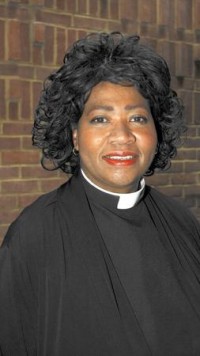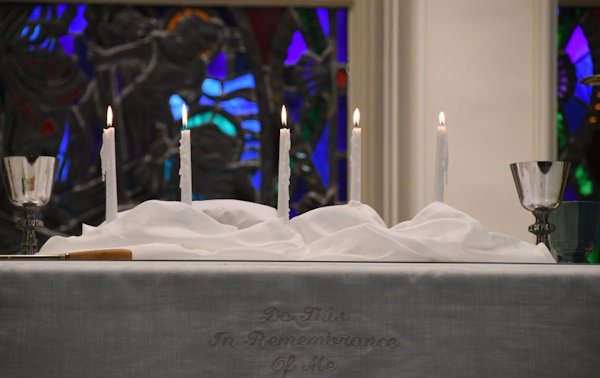A United Methodist chaplain was among early responders to the shooting at the Capital Gazette in Annapolis.
ERIK ALSGAARD
United Methodist News Service
On Thursday, June 28, life in Annapolis changed forever. That’s the day a lone gunman entered the offices of the Capital Gazette newspaper and killed five people. The dead were identified in published reports as Rebecca Smith, Wendi Winters, Rob Hiaasen, Gerald Fischman, and John McNamara.
Even as the community reeled at the news of the tragedy, the remaining staff at the Gazette continued their work, putting out a paper the next day.

One of the first responders to the shooting was the Rev. Carletta Allen, pastor of Asbury UMC in Annapolis. Allen serves as a chaplain with the Anne Arundel County Sheriff’s Department and was on call June 28. When the call came in, she said, she raced home, changed in to her uniform, and went to the scene where she stayed for about three hours.
“Even if I hadn’t been on call, I would have gone,” Allen said. “This is my neighborhood; I live here.”
Allen, who has been a chaplain for four years, said that when she walks into a scene like the one at the Gazette, she does triage.
“Where can I be of the most help?” she said, is the question she asks. “A lot of the ministry of a chaplain is a ministry of presence. I never cease to be amazed at how grateful people are just that you’re there. That really is a lot.”
Her presence as a chaplain, Allen believes, is a tangible sign of hope, and that, she said, “is the greatest gift we can give.”
After checking in with “brass,” she said, to make sure they were doing okay, Allen began to walk around the scene, checking in with every officer along the way. Some of them, she said, had been out in the middle of the street directing traffic for hours without a break, without a drink of water or any food.
“They were sweaty, they were exhausted,” Allen said. “I just asked them some simple, care-taking questions. And they always say, ‘Oh no, I’m fine,’ but it’s the fact that you asked, that you care about their well-being, that’s important.”
As she made her rounds, Allen said, there were a lot of deer-in-headlights looks. “Nobody ever expects it to happen to them,” she said. “And it did. It happened to them.”
These are fearful times, Allen said, and she feels for people who don’t have any hope. At the root of it all, Allen sees pain: pain that leads to addiction; pain that leads to suicide; pain that leads to anger and outbursts.
“The uncertainty that results from a workplace shooting just rocks people to their core,” Allen said. “The sense of ‘Where am I safe?’ is lost.”
Speaking on the day after the shooting, Allen said that she was sick, angry and heartbroken. “I literally yelled out loud when they read the names (of the deceased), because I knew Wendi; Wendi was a friend. It’s just so wrong. The people are just getting shot down, at work, in the movie theater, in the mall; it’s crazy.”
On the Sunday after the shooting, Allen said she was going to preach about the safety and security that only Jesus can bring. They were going to sing Gospel songs and offer prayers of praise and thanksgiving.
Last Updated on November 9, 2023

